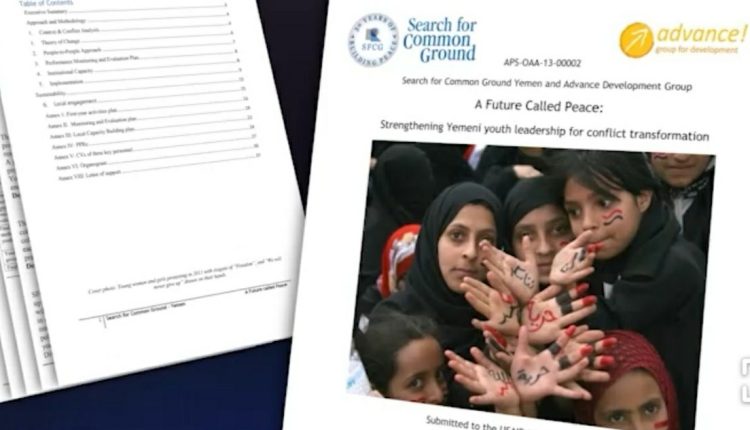SANAA, July 15 (YPA) – The security services in Sanaa revealed on Sunday new confessions by the American-Israeli spy network regarding the subversive activities that targeted young people in Yemen and exploited them to serve the American agenda and interests.
The confessions confirmed that the Americans were not satisfied with their control over the puppet regime but rather wanted influence over society at all levels and all groups and worked to influence its directions, decisions, and movements in a way that served their malicious agenda.
The spy cell members’ confessions revealed that the Americans were keen to target young people, exploit their energies, and employ them to serve their subversive projects and agenda to target Yemen’s present and future.
The enemies’ targeting of women comes from their awareness of the importance of their role and their great influence on family and society levels in general, as well as an attempt to incite conflict between them and men and create female models and leaders who work to implement American projects and agendas against Yemeni women.
In their confessions, the spy cell members touched on the methods and means of the American enemy’s systematic targeting of Yemeni women to distort their identity and attract them to work for its benefit.
According to the spy network’s confessions and documents, America’s projects directed towards Yemeni women are not to ease the burdens of life on them or to provide real education and qualification that will enable women to fulfill their responsibilities towards their family and society, but in fact aim to turn them into either dissatisfied with men, their society, their religion, their identity, their customs, and their traditions, or corrupt them morally to become just a worthless commodity.
The confessions confirmed that the American enemy’s focus on targeting the Yemeni tribe aimed to undermine its important and historically influential role in confronting the invaders and preserving Yemen’s identity and independence.
Targeting the tribe and attracting sheikhs and social groups was previously done through the Saudi regime and its special committee in the interest of the American project.
At the beginning of the third millennium, America moved directly to target the Yemeni tribe and try to penetrate it and recruit some sheikhs and figures who influence it, with a focus on tribes located in important geographical areas or close to oil wealth.
On the subversive activities targeting youth in Yemen, the spy, Hisham Al-Wazir, explained that the projects of both “Mercy Corp” and “AMIDEAST” worked directly to attract young men and women to work for the American embassy. They were managed directly by “Sabrina Viper,” who transports them to the American ambassador and his deputy through arranged meetings, as well as to the director of the United States Agency for Development and the deputy director of the agency.
Al-Wazir mentioned that there was another project affiliated with the “Common Ground” organization that began during the period of the dialogue conference, which was a project to build the so-called capabilities of young men and women in the field of conflict resolution, and it was targeting several governorates, including Sanaa, Taiz, Aden, and part of Lahj.
He stated that “with the reactivation of the project again for the benefit of the Common Ground organization to serve the aggression, Sanaa was canceled, especially after the formation of the Supreme Political Council, and the focus was only on Taiz and Aden, specifically Taiz, mainly.”
Al-Wazir affirmed that the most important thing that the Americans were gaining in secret from this project was the process of attracting and recruiting young men and women, spreading Western ideas and values, and ensuring the influence of social figures and determining them at the district level.
The spy, Muhammad Al-Waziza, explained that “the Youth Network” was established, which is a network consisting of 100 young people present in the five governorates targeted by the project, which are Aden, Hadramout, Marib, Ibb, and Sanaa.
Al-Waziza mentioned that this network was known in the “Ranin” Foundation as the “Leaders for Development” network, and it was later referred to as “Leaders for Development Network 1” within the project. He added that the “Ranin” Foundation provided a set of training workshops for capacity building, one of which was the preparation of project proposals, and this network was required to implement advocacy campaigns.
According to the spy Al-Waziza, one of the activities of this component was to implement a meeting for samples or groups from this network, where four people from each governorate out of twenty within the governorate would attend.
Al-Waziza explained that the meeting was held in the city of Mukalla, Hadramout Governorate, for three days, during which they talked about the mechanism of communication between people in the network and how they communicate with each other in the governorates, and within each governorate except Sanaa. He noted that the project also includes a network coordinator, as well as a consultant for each group in each governorate.
YPA


